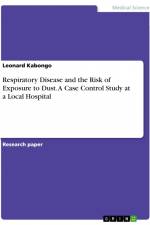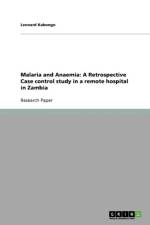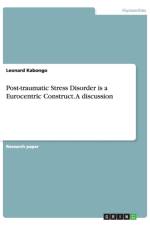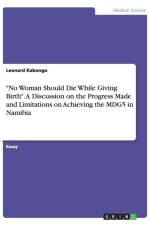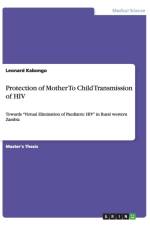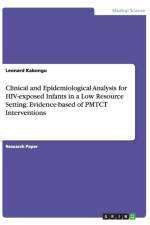- Evidence-based of PMTCT Interventions
von Leonard Kabongo
17,95 €
Research Paper (postgraduate) from the year 2011 in the subject Health - Public Health, grade: A, ( Atlantic International University ) (School of Human and social studies), course: Clinical epidemiology, language: English, abstract: Definitions:focus on the advantages and disadvantage of drugs, hence their effects. This let Kenneth Rothman, 2002 to say: ¿¿outcomes research marries epidemiologic methods with clinical decision theory to determine which therapeutic approaches are the most cost-effective¿¿. [10] This approach has lead to the concept of evidence ¿based medicine where sufficient proof are available to support a medical theory in disease management and promotion of various guidelines useful in clinical setting.Nonetheless, more medical and non medical conditions are still undiagnosed, under- diagnosed or wrongly diagnosed. As a consequence, extra, less cost-effective and unnecessary treatments are being prescribed. In this scenario, would the key to evidence- based medicine lie on diagnosis processes which are opaque to quantification and analysis, or on the deep-rooted knowledge of disease natural history, its transmission chain and physiopathology, or on the accuracy of diagnostic tests which have different level of interpretations according to their sensitivity or specificity? Or on prevention inputs to control the disease outcomes?In Zambia, roughly 80,000 infants are born annually from HIV infected mothers and are at risk of contracting the disease. An average of 20,000 are born with HIV each year (40%).The rate of vertical transmission varies from 15-25% in non-breastfeeding infants and double in breastfeeding ones. (Ministry of Health,National Protocol Guidelines, 2010). [14] For this research paper focused on PMTCT, we selected data for 3 years study from 2008 to 2010.This was a retrospective cohort study. The data included all pregnant women who attended ANC, those who were counselled and tested for HIV and those who delivered at the facility. Our indicators for the PMTCT interventions were pregnant women on HIV treatment (short course or full HAART), the number of HIV exposed babies who tested positive by DNAPCR and HIV antibody testing, the still births and those initiated on HIV prophylaxis. Patients¿ registers from Maternity, ANC, paediatric ward, laboratory, and ART clinic and hospital annual report were used.

